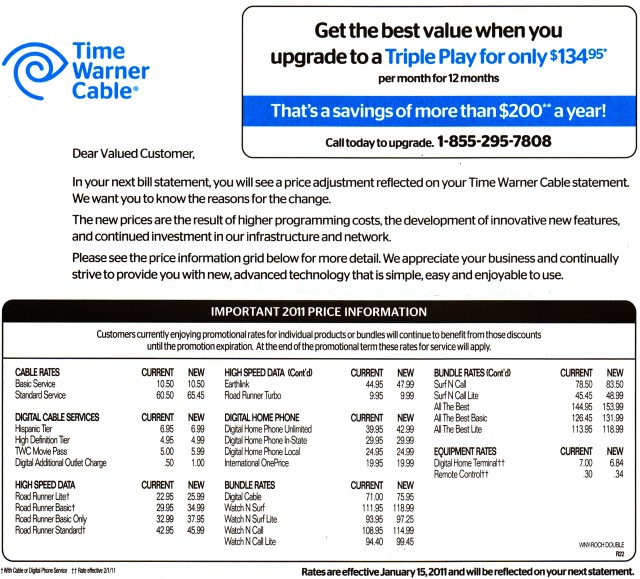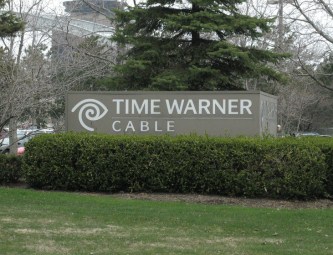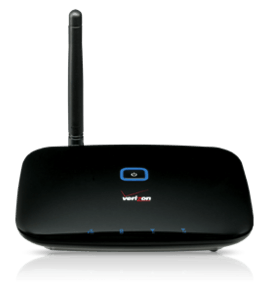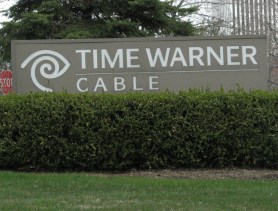Tim pays Time Warner Cable around $45 a month for 10/1Mbps service. Jake pays Comcast $35 a month for 12/2Mbps service. Neither reader of Stop the Cap! actually receives those speeds once the sun goes down, however.
Jake, who lives in a neighborhood near Philadelphia populated by loads of college students watches his download speed plummet to 4Mbps in the evening, even lower on weekends. Tim, a reader in the North Ponds Park region of Webster, N.Y., does even worse — 1.2Mbps evenings and weekends.
Neither reader is alone. The disparity in marketed speeds vs. actual speeds reveals the truth about cable modem technology — if not properly managed, congestion can bring the broadband party to a sudden halt (or at least rebuffering.)
Both are examples of “overselling,” the practice of piling too many customers onto too small a broadband pipe. If nobody is using the connection in the neighborhood, speeds are great. But as students get out of class and mom and dad get home from work, everyone wants to be online. Soon enough, the pipeline gets filled and speeds drop as the network tries to accommodate everyone.
 Most cable companies use fiber optics to bring a limited amount of bandwidth into individual areas of their network. Some might cover the better part of a town, others only a few city blocks. Every customer in the area shares that bandwidth. Cable companies monitor these connections looking for signs they are becoming overcongested during peak usage times. When those alarms start sounding consistently, companies are supposed to upgrade the area (or divide it up) to keep broadband service working close to advertised speeds.
Most cable companies use fiber optics to bring a limited amount of bandwidth into individual areas of their network. Some might cover the better part of a town, others only a few city blocks. Every customer in the area shares that bandwidth. Cable companies monitor these connections looking for signs they are becoming overcongested during peak usage times. When those alarms start sounding consistently, companies are supposed to upgrade the area (or divide it up) to keep broadband service working close to advertised speeds.
But some companies are waiting until broadband service becomes practically unusable before spending the money to upgrade their networks.
“I knew they were overselling this area when I noticed downloads speeds fell off the cliff, but the upload speed was near normal,” Jake writes. “The time of day also tells the story. Starting after 4pm, speeds begin to drop and become downright terrible after dinner and on weekends. Sunday night is always the worst.”
It’s a similar story in west Webster, near Lake Ontario, where neighborhoods several miles apart all watch their Road Runner speeds slow to a crawl.
“Browsing is slow, downloads are painfully slow, latency is very high and streaming any sort of video online is impossible,” Robert, another Webster resident, told Time Warner Cable (and us). “I have been a customer since 1998 and for me to not even be able to download at a 1 Megabit speed when this service is supposed to be 10 megs (and more with PowerBoost) is inexcusable.”
The problem of overselling is also common in larger cities like New York and Philadelphia, where some neighborhoods endure “broadband” speeds that resemble “dial-up” when customers pile on the network.
“Comcast says they never see a problem and have repeated that to me over and over, even when they send a truck out,” Jake tells Stop the Cap! “Of course, their truck rolls in the daytime when there isn’t a problem.”
Time Warner customers in eastern Monroe County have been told the cable company is well aware of the congestion problems, and technicians dispatched to area homes candidly admit the company has not kept up with the growth of new housing developments. Several customers have asked for, and won, several months of service credits for broadband they simply cannot use.
Tim says the entire affair has left him with doubts about Time Warner’s reputation to provide quality broadband service.
“At one time, I considered myself a candidate to upgrade to Time Warner wideband when it became available,” he tells us. “My thinking on that has changed and I am looking into viable alternatives to Time Warner. Money has become of less importance to me than principle, and I may end up with a higher cost solution than staying with Time Warner.”
With our encouragement, these customers (among others) have filed complaints with the Better Business Bureau and have tried to get attention focused on their neighborhoods.
A representative of Time Warner today told Robert the company has confirmed Webster has a problem and it is being worked on, but no specific date has been offered when things will return to normal. He received a credit for one month of service.
Jake wants answers about how a company the size of Comcast can ignore a problem of this magnitude.
“Is it really about the money,” he asks. “This company just bought NBC and doesn’t have the resources to sell Internet service that at least comes close to the speeds they advertise?”
Stop the Cap! advises customers with speed problems to make your feelings known. The squeaky wheel gets the upgrade. Start with customer service and work your way up. Demand service credits, an in-person repair visit to check your lines, and then escalate complaints to supervisors and social media networks like Twitter and Facebook. Also consider contacting local media “consumer reporters,” and file complaints with the Better Business Bureau. Sooner or later, a manager will escalate your case to a department that is empowered to authorize upgrades without red tape.
Considering the enormous amount of revenue earned from selling broadband service, it is only fair to expect you will have access to something close to the speeds offered when you signed up.


 Subscribe
Subscribe











